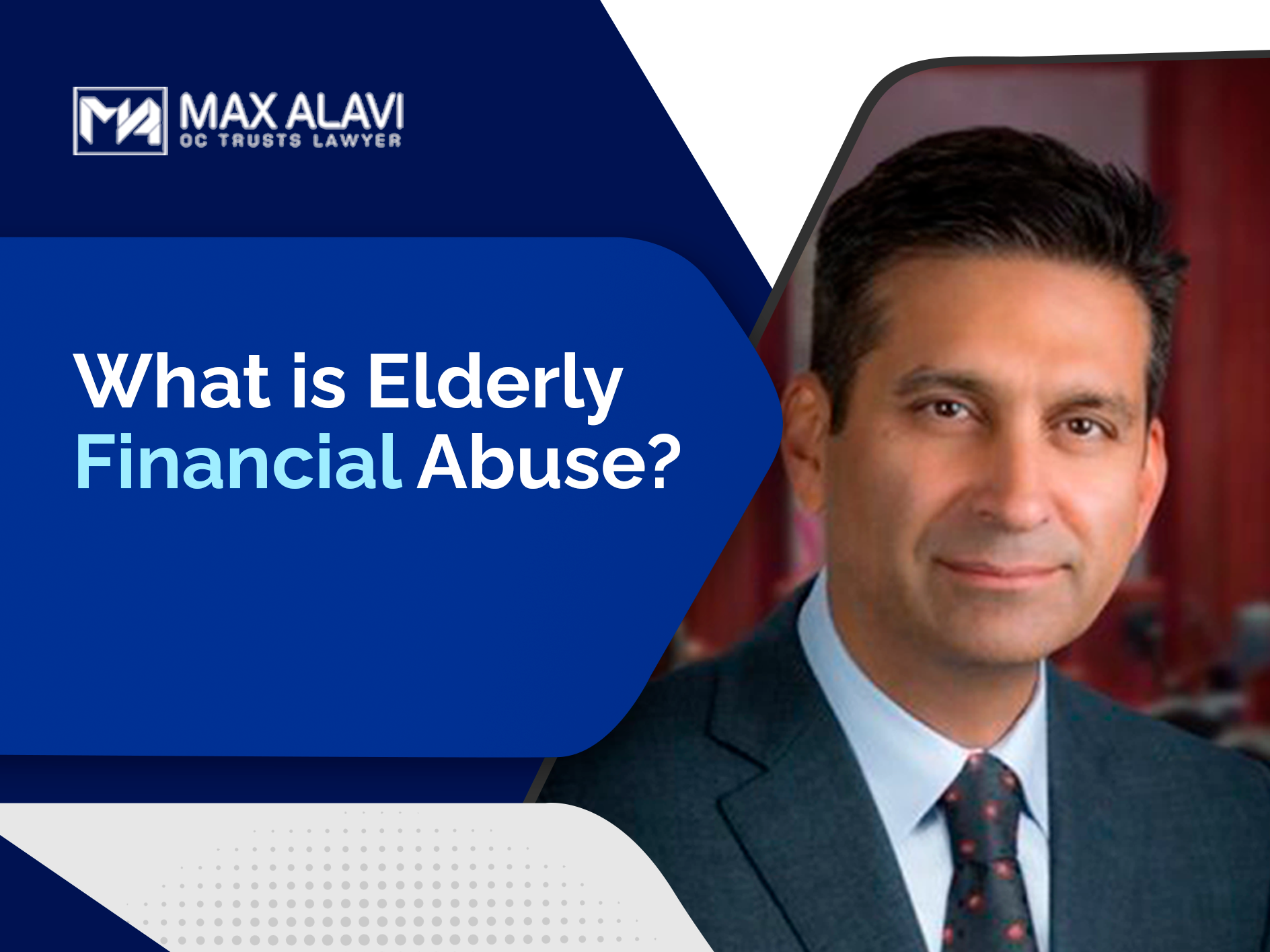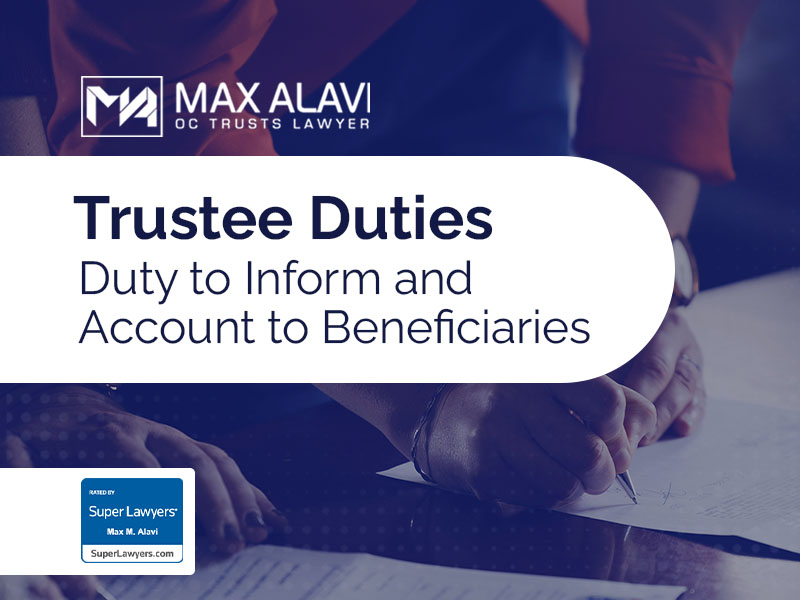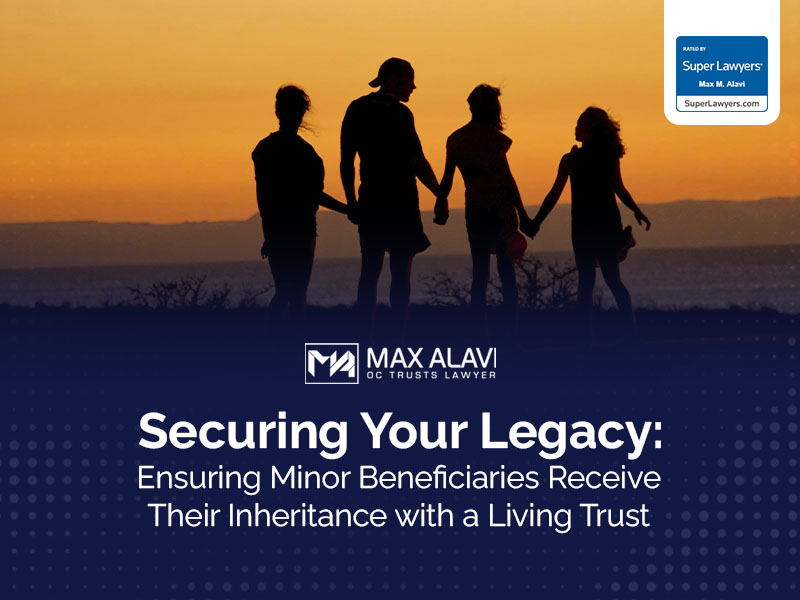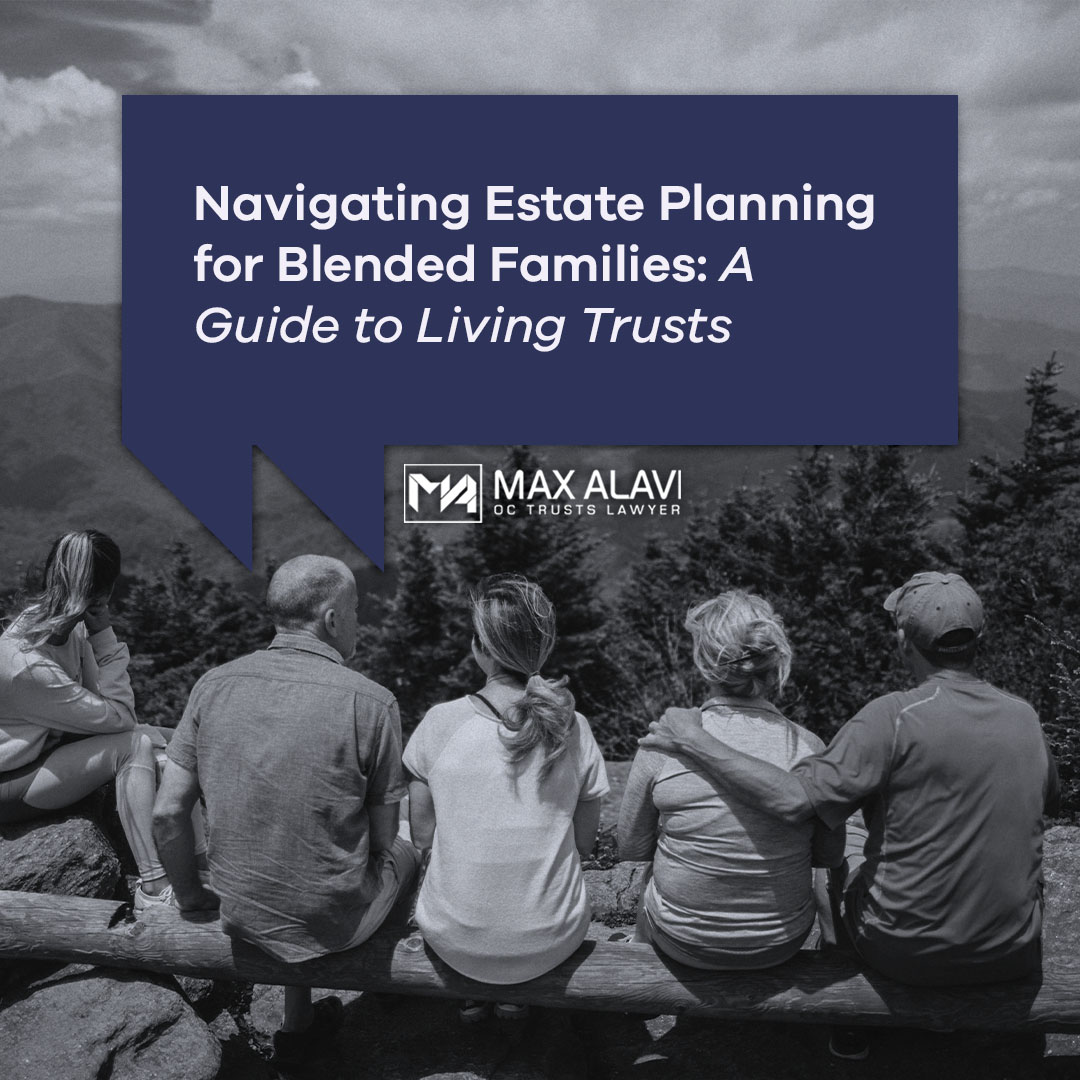Elderly financial abuse can involve acts of neglect, fraud, or exploitation that adversely affect the financial standing of a senior citizen or a dependent adult. Often, financial abuse of the elderly can involve the elderly trust administration and probate administration. To ensure adequate protection, it’s important to know what qualifies as elderly financial abuse and to speak with a Trust Litigation Lawyer about these issues. Learn more in this post from Max Alavi APC, OC Trusts Lawyer.
What is Elderly Financial Abuse?
We all need more assistance as we age. Sadly, there are people, including family members, who prey on the elderly in times of their need. Elderly financial abuse is all too common. According to California law, elderly financial abuse occurs whenever an older or dependent adult is subjected to financial exploitation or fraud.
What Does Financial Abuse of the Elderly Look Like?
Multiple factors make a situation qualify as financial abuse of the elderly. Those factors include:
- The victim is a senior citizen (age 65 and over) or dependent adult (age 18 to 64 but with a significant physical or mental impairment that makes independent living prohibitive).
- The defendant took advantage of the victim’s vulnerability or impaired state to exploit them; for instance, by obtaining or using the victim’s funds without their awareness or consent.
- The defendant acted recklessly or intended to defraud/exploit the victim.
- The victim suffered harm or loss, including the loss of money or inability to secure food, shelter, medical care, and other essentials.
- The defendant’s actions played a consequential role in the victim’s loss.
Elderly Financial Abuse, Trust Administration, and Probate Administration
Elderly Financial elder abuse often comes to light only after the passing of the elderly person, which then can be linked with estate planning issues, including trust administration and probate administration. Consider some examples:
- A person uses undue influence to coerce an elderly person to change the terms of their will or trust (often to the defendant’s benefit).
- A person practices fraud, falsifying documents to obtain an inheritance or other benefits of a deceased person’s estate.
- A trustee or executor mismanages or embezzles assets associated with an estate.
- A trustee or executor breaches their fiduciary duty, taking self-serving actions or simply harmful to the estate.
- A person who has a duty to administer the estate is neglectful in their actions, failing to do what is needed to preserve the estate’s full benefits on behalf of beneficiaries.
Elderly Financial Abuse: A Case Study
For an example of what elderly financial abuse might look like in the State of California, consider the case of Niece v. Benedict (2017).
The case involved an 87-year-old woman who lived in a nursing home, suffering from dementia. Her niece was named the sole beneficiary of her estate, with the woman’s sister as the alternate beneficiary.
After the elderly woman passed away, her sister contested the will, claiming that the niece had coerced the woman into changing her will. The sister further claimed that the niece had isolated the elderly woman from her loved ones, controlling her finances and denying her medical care.
The court ruled in favor of the sister, finding that the niece had unduly influenced the elderly woman to change her will while she was suffering from dementia and unable to make clear decisions on her own. The court also found that the niece had engaged in elder abuse by isolating the woman from her family and blocking her from receiving medical care.
Get the Protection You Need from a Skilled Estate Planning Attorney
This case study reveals the importance of protecting the rights of elderly individuals, upholding their wishes, and caring for them even if they suffer from mental and physical impairments. It also shows that financial elder abuse can occur even at the trust administration or probate administration stage, often with dire consequences.
One way to put the right protections in place is to meet with an estate planning attorney. Max Alavi APC, OC Trusts Lawyer, is here to answer any questions about averting elderly financial abuse in will and trust. To schedule a consultation, contact Max Alavi APC, OC Trusts Lawyer, today.






